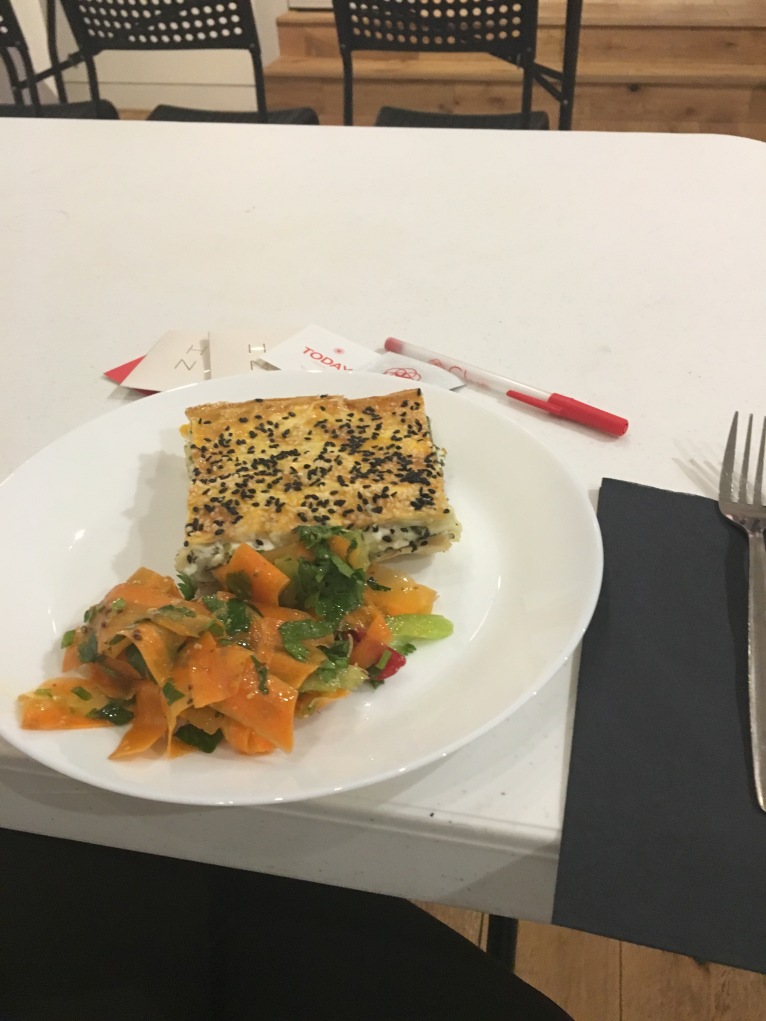Nearly everyday I learn something new from the cycle tracking app Clue. Usually it’s about my own body, a new trend the app has noticed, a connection I thought was a coincidence that actually might be cycle related, or a fact that the app provides in its educational features. Last week however, I was lucky enough to make it to two of Clue’s events, as the blossoming company organised a week of talks in London.

On Tuesday evening I went to Facebook’s London HQ for a talk entitled ‘Hormones and the Cycle’ and on Wednesday I went to a ‘Lunch and Learn’ session on ‘Sex and the Cycle’. The events were brilliant and provided an opportunity to meet people from all walks of life, with one common interest – a desire to learn more about the menstrual cycle. The events were hosted by Clue’s Ambassador Program Manager, Maddie Sheesley, and its Researcher and Science & Education Manager, Anna Druet. This pair of brilliant FemTech advocates both fought the corner for how powerful education about reproductive health can be – teach a girl about her body and you can change the world.

So without further ado, here are a few things I learnt at Clue this week, that I didn’t know before.
- PMS as a concept that was coined before we even knew about hormonal fluctuations in the menstrual cycle, and yet we still use the same information to talk about and categorise it. Clue have written about the rarely discussed positive effects of PMS.
- I knew that the cervix moved throughout the cycle (as I terrifyingly discovered when I was learning how to use the menstrual cup). What I didn’t know was that it moves up and down throughout your cycle, an occurrence that can improve, or at least change, how sex can feel. What’s more, the combined pill (that’s the standard birth control pill) stops the cervix from moving up and down, it potentially lowers slightly during a placebo week. There are also reports of cervical orgasms – who knew?!
- Perhaps most interesting for me and my own health was learning that research strongly suggests that chronic pain is worse towards the end of the luteinising phase of one’s cycle – the run up to a period. I clarified at the event, was this reproductive chronic pains or all chronic pain? It is all chronic pain. So when I wrote a few weeks ago that ‘whatever the problem is, it is either worsening or being worsened by my menstrual cycle’ I was right on the money. Even if it’s my kidneys, my bladder, my bowels or elsewhere, it was always going to get worse around my period because pain tolerance goes down. Imagine how useful that knowledge would have over the last year if I’d had it. Knowledge of self is POWERFUL.
- Some research has suggested that a low risk of pregnancy can cause people to enjoy sex more – explaining potential peaks of sex drive near menstruation. I certainly know a lot of people that can attest that low risk of pregnancy is sexy.
- Very early research suggests that the clitoris grows 1/5 of its size during ovulation. That is bonkers!
- The level of Oestrogen in combined pills has been dropping over the years. Now they start low and build up if necessary.
- Each time you’re late taking the combined pill the follicle grows slightly. So if you consistently, occasionally forget to take the pill on time, it can eventually lead to ovulation. That is terrifying (but also kind of cool).
- The Progesterone Only Pill (POP/Mini-Pill) stops pregnancy by changing the consistency of your cervical fluid to block sperm. I was on the mini-pill for two years and only now do I know how it works.
- Emergency contraceptives aren’t all equally effective at every point in your cycle – also terrifying and not common knowledge.
- Most methods (or all, I’m unsure) of tracking ovulation are retrospective – we can’t yet predict when that moment is going to happen.
Interestingly, many of the questions from the audience started with ‘I recently came off the pill…’ or similar. So it’s not just something I’m imagining, there is the demand for a contraceptive shake-up. The events did remind me how valuable and life-changing hormonal contraception can be, but if you ask me, there has to be a better way. One of my favourite things about Clue is that the data you input is used in research into the menstrual cycle, so while there’s so much more to learn, at least my data is helping the cause (I hope!)
To keep up with what I’m doing, follow me on Twitter or Instagram for beautiful photos of my lunch with a side of condoms. Thanks, Clue!


One thought on “What I learnt at Clue last week #Periodically 14”